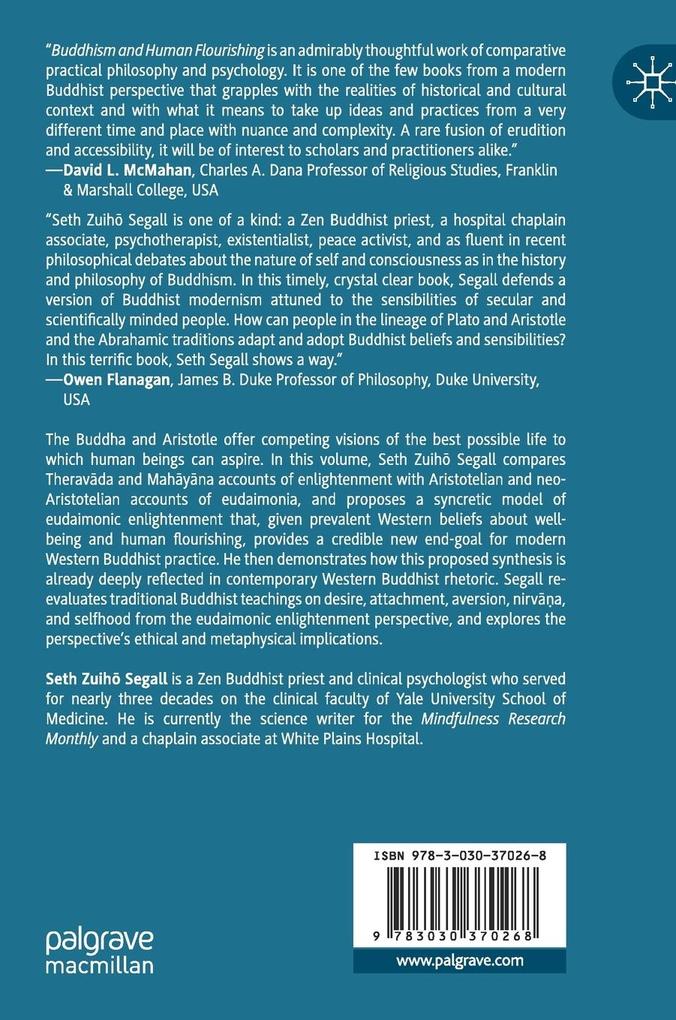
Zustellung: Di, 01.07. - Fr, 04.07.
Versand in 1-2 Wochen
VersandkostenfreiBestellen & in Filiale abholen:
The Buddha and Aristotle offer competing visions of the best possible life to which human beings can aspire. In this volume, Seth Zuih Segall compares Theravada and Mahayana accounts of enlightenment with Aristotelian and neo-Aristotelian accounts of eudaimonia, and proposes a syncretic model of eudaimonic enlightenment that, given prevalent Western beliefs about well-being and human flourishing, provides a credible new end-goal for modern Western Buddhist practice. He then demonstrates how this proposed synthesis is already deeply reflected in contemporary Western Buddhist rhetoric. Segall re-evaluates traditional Buddhist teachings on desire, attachment, aversion, nirvana, and selfhood from the eudaimonic enlightenment perspective, and explores the perspective's ethical and metaphysical implications.
Inhaltsverzeichnis
Chapter 1 The Changing Nature of Buddhism. - Chapter 2 What is Enlightenment? . - Chapter 3 What is Eudaimonia? . - Chapter 4 The Fate of Traditional Enlightenment in the West. - Chapter 5 Suffering and the Cessation of Suffering. - Chapter 6 Self and Self-Transcendence. - Chapter 7 Buddhist Ethics and Eudaimonic Enlightenment. - Chapter 8 Metaphysical Humility: The Eudaimonic Enlightenment Model and Beyond.
Produktdetails
Erscheinungsdatum
28. Februar 2020
Sprache
englisch
Auflage
1st edition 2020
Seitenanzahl
212
Autor/Autorin
Seth Zuih Segall
Verlag/Hersteller
Produktart
gebunden
Abbildungen
XVI, 193 p.
Gewicht
393 g
Größe (L/B/H)
216/153/17 mm
ISBN
9783030370268
Entdecken Sie mehr
Pressestimmen
In a style that is clear and informative, nondogmatic and inviting, Segall sails a balanced course between deep respect for both traditions of wisdom and critical reflection on their blind spots. Segall s clear and thoughtful book will be of great interest to a wide variety of readers from laypeople who yearn for more sustaining ideals to seasoned scholars and spiritual practitioners who are open to questioning and deepening their quest to live a better life. (Jeffrey B. Rubin, The Humanistic Psychologist, Vol. 49 (1), 2021)
Bewertungen
0 Bewertungen
Es wurden noch keine Bewertungen abgegeben. Schreiben Sie die erste Bewertung zu "Buddhism and Human Flourishing" und helfen Sie damit anderen bei der Kaufentscheidung.










